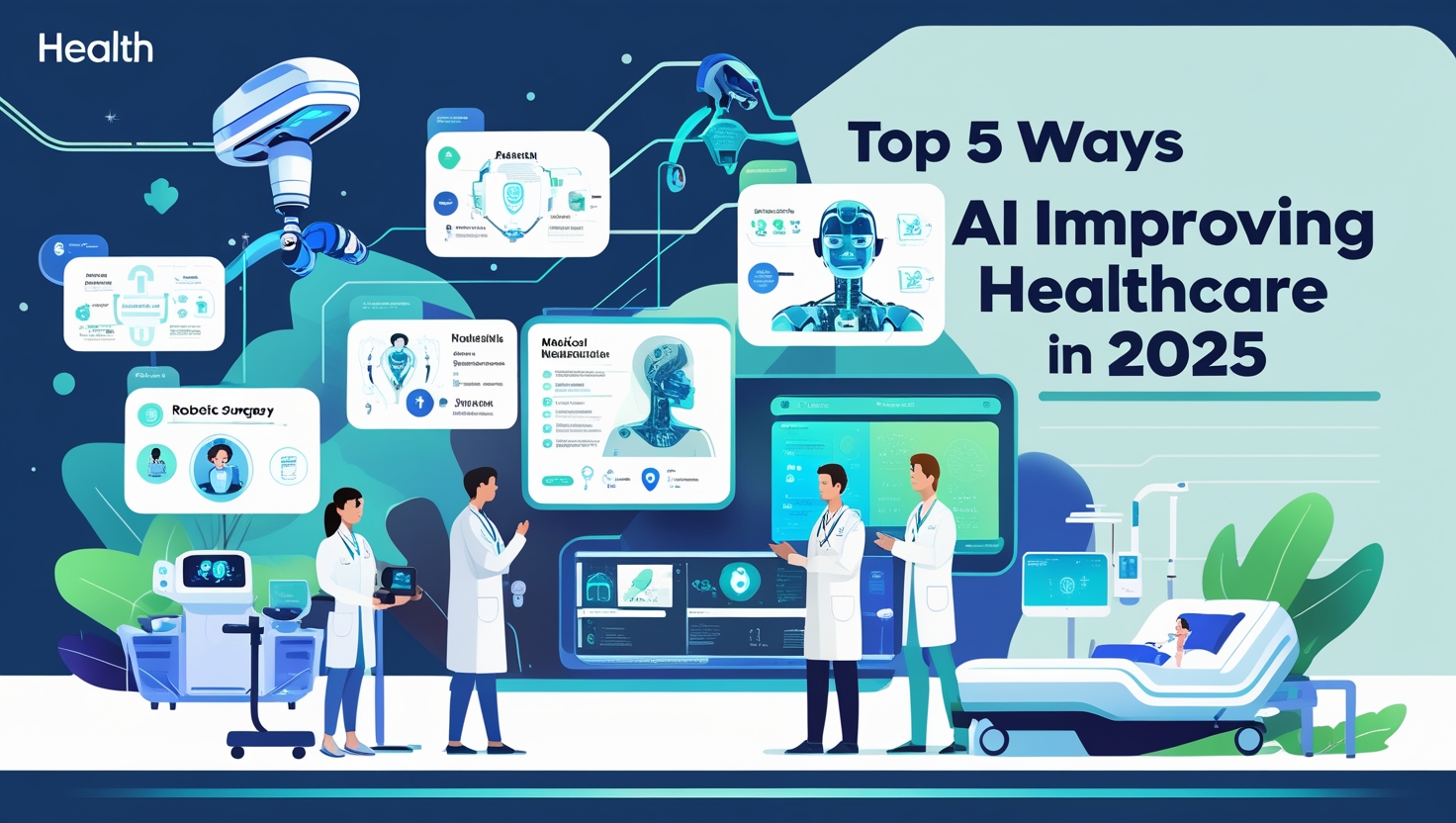Artificial Intelligence (AI) is transforming the healthcare industry in unprecedented ways, making medical care more accurate, efficient, and accessible. In 2025, AI’s impact on healthcare continues to grow, helping doctors, patients, and healthcare systems achieve better outcomes. Here are the top 5 ways AI is improving healthcare this year:
1. Enhanced Disease Diagnosis
AI-powered tools are revolutionizing diagnostics by identifying diseases earlier and more accurately. Machine learning algorithms analyze medical imaging, pathology slides, and patient data to detect conditions like cancer, heart disease, and neurological disorders with remarkable precision. For example, AI can identify abnormalities in X-rays or MRIs faster than a human radiologist, leading to earlier interventions and improved survival rates.
2. Personalized Treatment Plans
AI enables healthcare providers to create customized treatment plans based on a patient’s unique medical history, genetic profile, and lifestyle. AI algorithms analyze vast amounts of patient data to recommend therapies most likely to succeed. This personalized approach improves patient outcomes, reduces trial-and-error treatments, and minimizes side effects, making healthcare more effective and tailored.
3. Streamlined Administrative Tasks
Administrative tasks like billing, scheduling, and record-keeping are time-consuming but essential in healthcare. AI automates these processes, reducing paperwork and freeing up healthcare professionals to focus on patient care. For example, AI tools like natural language processing (NLP) transcribe doctors’ notes, update patient records, and streamline insurance claims, improving efficiency and reducing burnout among medical staff.
4. Predictive Analytics for Preventive Care
AI excels in analyzing patterns and predicting potential health issues before they become critical. Predictive analytics tools use AI to monitor patient data in real time, identifying risks like heart attacks or strokes before symptoms appear. Wearable devices integrated with AI help patients and doctors track vital signs and take preventive measures, leading to healthier lifestyles and reduced hospital visits.
5. Drug Discovery and Development
The conventional process of developing new drugs is typically slow and costly. AI speeds up drug discovery by analyzing extensive datasets to pinpoint potential compounds and forecast their efficacy. In 2025, AI-powered platforms are helping pharmaceutical companies shorten research timelines, reduce costs, and bring life-saving treatments to market faster than ever before.

